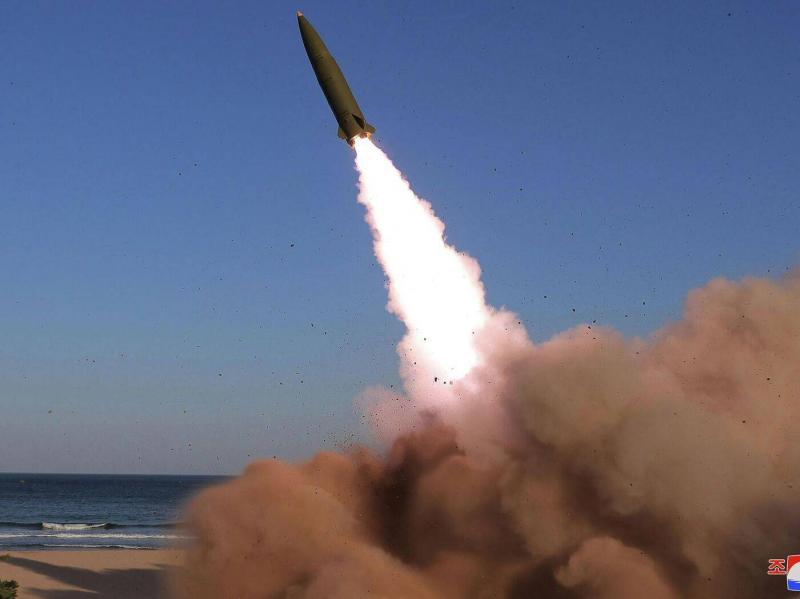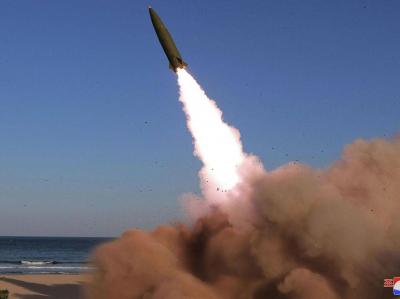Official media in North Korea reported that the country tested its latest intercontinental ballistic missile, the "Hwasong-18," yesterday, stating that the weapon is fundamental to its nuclear strike capability and warning the United States and other adversaries.
The state-run Korean Central News Agency stated, "The launch experiment is an essential process aimed at increasing the strategic nuclear force development of the Republic, and at the same time, it serves as a strong practical warning to adversaries."
The report accused Washington of escalating tensions by deploying submarines and bombers in the Korean Peninsula and conducting nuclear war plans with South Korean allies, asserting that the military security situation has "reached a nuclear crisis phase post-Cold War."
It noted that North Korean leader Kim Jong-un oversaw the test and indicated that his country would take increasingly strong measures to protect itself until the U.S. and its allies abandon their "hostile policies."
The agency mentioned that the flight time of the "Hwasong-18" was 74 minutes, the longest ever in a North Korean missile test, adding that the second and third stages flew on a high trajectory, reaching significant altitudes for safety. It emphasized that "the launch experiment had no adverse effect on the security of neighboring countries."
North Korea stated that the missile traveled a distance of 1,001 kilometers at an altitude of 6,648 kilometers. Japan reported that the missile fell into the sea east of the Korean Peninsula, approximately 250 kilometers west of Okushiri Island, northern Japan.
Photos released by the Korean Central News Agency showed the "Hwasong-18" missile being launched from a container mounted on a wheeled mobile vehicle designed to allow firing from unpredictable locations.
The United States and officials in Seoul, Tokyo, and other nations condemned the launch, which was reported by the South Korean and Japanese militaries at the time. Foreign ministers of the G7 group issued a joint statement denouncing North Korea's launch of another intercontinental ballistic missile, stating: "We strongly condemn North Korea's brazen launch of another intercontinental ballistic missile on July 12." They added, "These launches represent severe threats to regional and international peace and stability, undermining the global non-proliferation regime."
Additionally, ASEAN foreign ministers expressed "strong discontent" over North Korea's ballistic missile launches this week and urged the isolated nation to take steps to ease tensions. The ASEAN foreign ministers are meeting in Jakarta with envoys from the United States, South Korea, Russia, China, and other countries.
The "Hwasong-18" was first launched in April and is North Korea's first intercontinental ballistic missile to utilize solid propellant, which could allow for faster deployment of missiles during wartime.




